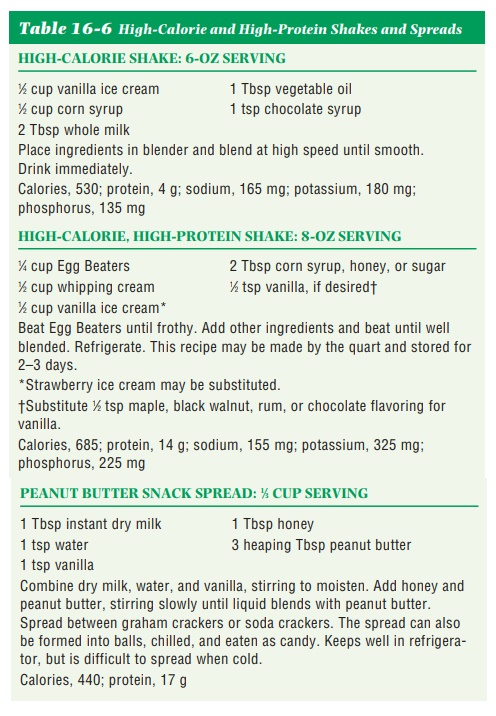Chapter: Nutrition and Diet Therapy: Diet and Weight Control
Underweight
UNDERWEIGHT
Dangers
Underweight can cause
complications in pregnancy and cause various nutri-tional deficiencies. It may
lower one’s resistance to infections and, if carried to the extreme, can cause
death.
Causes
Underweight can be
caused by inadequate consumption of nutritious food because of depression,
disease, anorexia nervosa, bulimia, or poverty, or it can be geneti-cally
determined. It also can be caused by excessive activity, the tissue wasting of
certain diseases, poor absorption of nutrients, infection, or hyperthyroidism. For further
discussion of anorexia nervosa and bulimia.
Treatment
Underweight is treated
by a high-calorie diet or by a high-calorie diet combined with psychological
counseling if the condition is psychological in origin as, for example, in
depression or anorexia nervosa. In many cases, a high-calorie diet will be met
with resistance. It can be as difficult for an underweight person to gain
weight as it is for an overweight person to lose it.
The diet should be
based on MyPyramid so that it can be easily adapted from the regular, family
menus or to a soft-textured diet. The total number of calories prescribed per
day will vary from person to person, depending on the person’s activity, age,
size, gender, and physical condition.
If the individual is
to gain 1 pound a week, 3,500 calories in addition to the individual’s basic
normal weekly calorie requirement are prescribed. This means an extra 500
calories must be taken in each day. If a weight gain of 2 pounds per week is
required, an additional 7,000 calories each week, or an additional 1,000
calories per day, are necessary. This diet cannot be immediately accepted at
full-calorie value. Time will be needed to gradually increase the daily calorie
value. In this diet, there is an increased intake of foods rich in
carbohydrates, some fats, and protein. Vitamins and minerals are supplied in
adequate amounts. If there are deficiencies of some vitamins and minerals,
supplements are prescribed.
Nearly all nutritious foods are allowed in the high-calorie diet, but easily digested foods (carbohydrates) are recommended. Because an excess of fat can be distasteful and spoil the appetite, fatty foods must be used with discretion. Fried foods are not recommended. Bulky foods should be used sparingly. Bulk takes up stomach space that could be better used for more concentrated, high-calorie foods. See Table 16-6 for high-calorie and high-protein shakes and spread that could be used to increase caloric intake.

Persons
requiring this diet frequently have poor appetites, so meals need to be
especially appetizing. Favorite foods should be served, and portions of all
foods should be small to avoid discouraging the clients. Many of the extra
calo-ries needed may be gotten as snacks between meals, unless these snacks
reduce the client’s appetite for meals and consequently reduce daily calorie
total. Some clients do better if the number of meals is reduced, thereby
increasing the appetite for each meal served. When the causes of underweight
are psychological, therapy is required before the diet is begun, and the
dietitian and therapist may well needto consult one another before and during
treatment. Foods to be avoided in a high-calorie diet are foods the client
dislikes, fatty foods, and bulky, low-calorie foods.
Related Topics